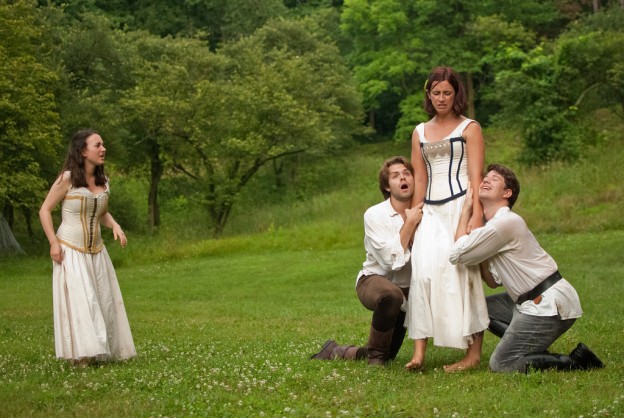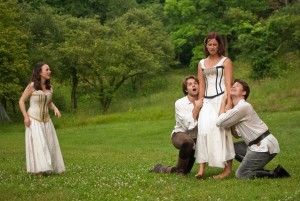“The birds and the bees” is a sexual euphemism that underlines the connection between sex and pregnancy, and the pollination and fertilization of plants. Indeed, there is something erotic about plants and their growth.
Author Archives: d40909v
“The Play’s the Thing”: Problem Plays and Social Critique
There are two posters that I’ve carried with me throughout my Dartmouth Career. I’ve schlepped them from room to room, rolled them up every ten weeks and then unrolled them, flattened them out, and pinned them up. One is my dad’s poster of John Belushi as Senator Blutarsky, and the other is the final stage direction from Ibsen’s A Doll’s House.
A Doll’s House famously ends with Nora, the protagonist of the play, leaving her husband and children with the door slamming behind her. I adore A Doll’s House, and find the ending deliciously satisfying in a way that I could never find the ending to Measure for Measure.
“Live aye with thy name!” Thoughts on Pimps and Posterity
Sex! Sex sells: we hear this all the time. Sex is sold, we hear this all the time whether it is in conversations about advertising or prostitution; Cressida in Troilus and Cressida; or the relative value of women and men at Dartmouth as they progress through their time here on the “Dartmouth X”: in all of these instances sex is a commodity to be purchased by the highest bidder.
The Only Peacemaker
If one embarks on a quixotic quest for Shakespearean know-how, one must prepare for strange fall-out. And with this ‘if’ I draw you into my realm of possibilities. Who knows what will happen *if* you continue to read…
“The poor abuses of the time”: Henry IV’s Strange Temporal Location
They say that “hindsight’s always 20/20”. Knowing what we know in the present, if it were possible to go back then we could “fix” the past—avoid the mistakes we made the first time around. In a similar vein, it is said that “those who cannot remember the past are condemned to repeat it”. The past exists as a place defined by the present: we can see where we went wrong, and what we should have done differently. But, the past defines the present as much as it is defined by it.
The limited value of virginity: “But even now worth this, and now worth nothing?”
The limited value of virginity: “But even now worth this, and now worth nothing?”
Beginning with Salarino’s extended metaphor in Act One, Scene One, describing one of Antonio’s ships run a-ground as a violated woman, female worth in Merchant of Venice is connected to chastity.

Problematic Endings
In The Shakespearean Marriage (1998), Lisa Hopkins powerfully problematizes the “happy ending” of Shakespearean Comedies:
The audience is repeatedly encouraged to expect that the proceedings will be appropriately closed with a wedding—but these expectations are then either disappointed, or gratified in such a way that the spectator will be forced to question both the meaning of the events he or she has witnessed and also the assumptions underlying his or her response to the events. (17) Continue reading

